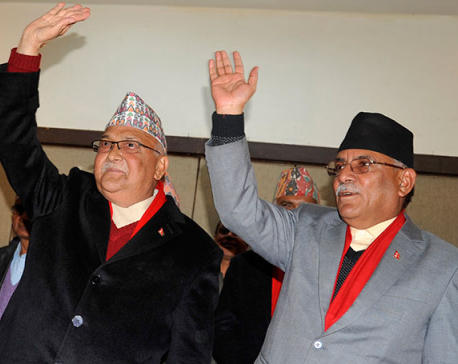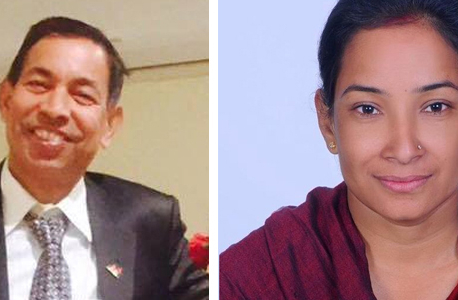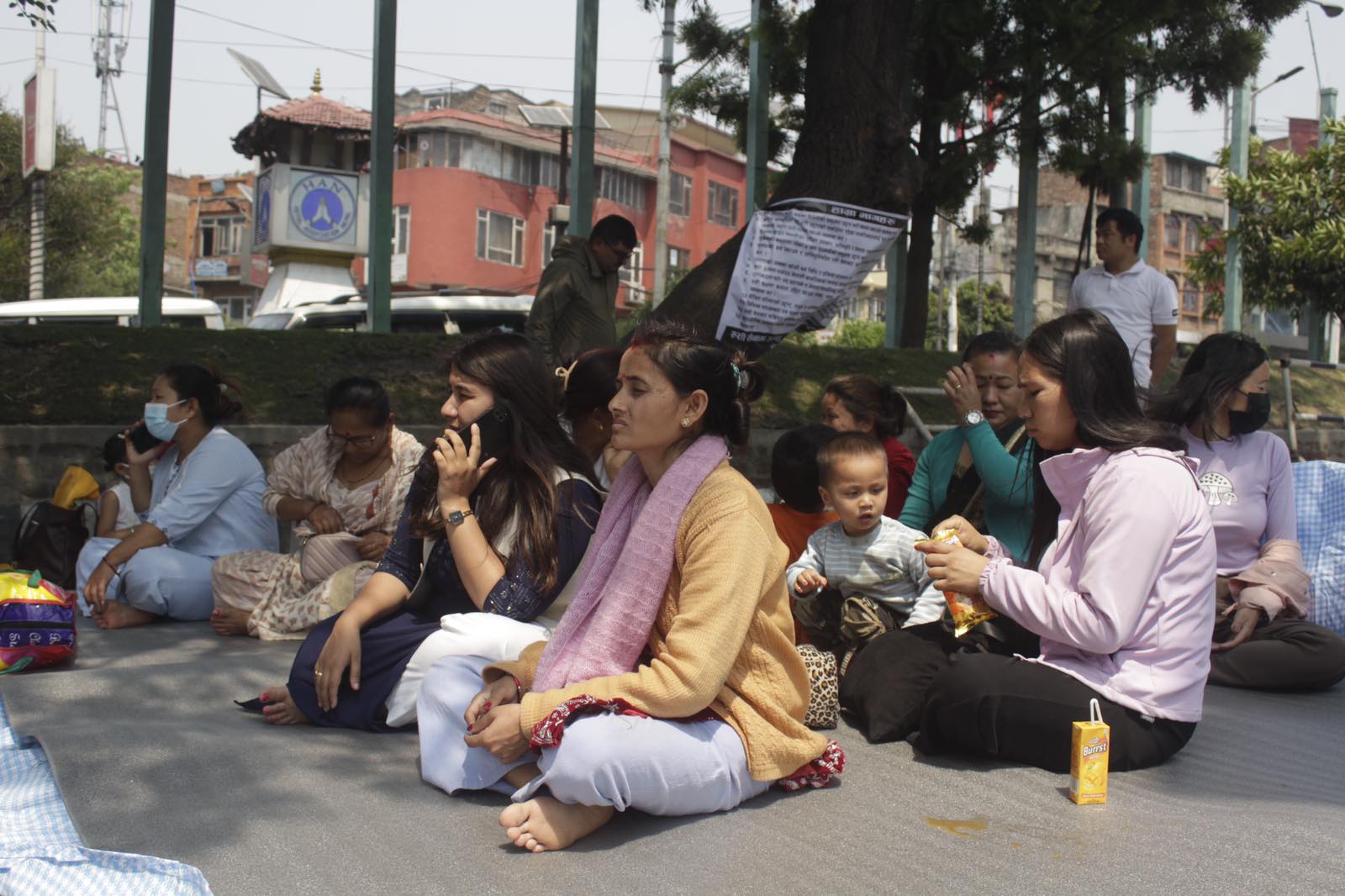
OR
UML buoyed, NC-Maoists upset with poll results
Published On: July 3, 2017 06:00 AM NPT By: Roshan Sedhai

-Poll results raise hope and fear for provincial and federal elections
-NC leaders blame intra-party feud and betrayal from within for setback
-Maoist leaders think UML's propaganda against the party affected its performance
-UML hopes to strengthen its performance in upcoming polls
KATHMANDU, July 3: After the CPN-UML emerged victorious in provinces 3, 4 and 6 in the first phase of the local polls, several leaders of the ruling Nepali Congress and CPN (Maoist Center) stood in defense of their parties' performances, arguing that the outcome was not that much unexpected given UML's sway in the provinces.
Leaders from both parties claimed that their parties would compensate the loss incurred in the first phase with elections in tarai and far- and mid-western regions of the country.
But weeks later, it's becoming increasingly clear that the second phase of local elections has been hardly any different for the ruling NC and Maoist Center in terms of electoral gains.
Vote count for the second phase of local elections shows NC and CPN (Maoist Center) trailing behind UML respectively in the second and third position. Until Sunday, NC and Maoist Center have registered victory in 76 seats and 28 seats respectively, compared to UML's 91 seats.
Irrespective of whether the parties succeed in making a comeback in Province 2 that is planned to go to polls on September 18, NC and Maoist Center have little reasons to cheer for the outcomes of the first two phases of local polls, leaders said.
“Our party has not yet made any official view on the outcome of the elections. But we are definitely not happy with our overall performance,” said Maoist Center spokesperson Pampha Bhusal.
Bhusal said that she was especially concerned with the party's performance in the eastern region and urban areas.
“I think rumors spread by the main opposition also affected us in some ways. Additionally, money also became a big attraction in this election,” said Bhusal.
The poll result has come as an even bigger setback for NC, which is in charge of the government. The party tried its best to mobilize power and resources at its disposal to sway the polls in its favor.
It also did everything to check UML's advance in the second phase of local polls. The party formed alliances with other parties in hundreds of local units to ensure victory in core constituencies.
Despite all this, the party failed to produce the desired results.
“The party undoubtedly suffered a setback in these elections. There were hopes for better results especially in Province 1 and Province 2,” said NC Chief Whip Chinkaji Shrestha.
Stung by the party's poor performance, the NC headquarters has already directed the lower committees to clarify on its defeats in constituencies where it had hoped to win.
“The reports submitted by the district chapters suggest that intra-party betrayal was the main reason behind our loss. There are some other factors too but the intra-party feud was the main reason,” said Shrestha.
NC leaders appear especially worried about the party's dipping popularity in its core constituencies including in the tarai belt and eastern region. It is equally concerned about UML's growing influence in the far western region in the backdrop of the nearing elections of the provincial and central governments.
The UML leadership, by far, looks the happiest lot at the moment. Leaders said that the party will produce similar results in the third phase of local elections.
“We are satisfied will the results though we still believe that our party could have done much better than this. We are hopeful of better performances in the elections of the provincial and federal governments,” said UML Secretary Pradeep Gyawali.
Gyawali said numerous factors including the party's stance on constitution, strong organization and candidate selection boosted the party's performance.
“One reason why we are very optimistic about the elections for the provincial and central government is it will be difficult for the ruling parties to isolate us. They won't be able to form alliances against us due to the limited number of seats,” said Gyawali.
You May Like This

Oli, Dahal review NA poll results, discuss party unification
KATHMANDU, Feb 7: CPN-UML Chairman KP Sharma Oli and CPN (Maoist Center) have held a meeting today. ... Read More...

Vote count in Bharatpur metropolis: UML wins in 10, NC in 4, UML still takes lead at mayoral level
CHITWAN , May 23: Vote count has been over in 10 of a total of 29 wards in Bharatpur Metropolitan... Read More...

UML voters reject electoral alliance with RPP, more votes for UML without deputy mayoral candidate
LALITPUR, May 15: UML voters have rejected an alliance with Rastriya Prajantra Party(RPP) by casting votes in favor of their... Read More...

Just In
- Govt padlocks Nepal Scouts’ property illegally occupied by NC lawmaker Deepak Khadka
- FWEAN meets with President Paudel to solicit support for women entrepreneurship
- Koshi provincial assembly passes resolution motion calling for special session by majority votes
- Court extends detention of Dipesh Pun after his failure to submit bail amount
- G Motors unveils Skywell Premium Luxury EV SUV with 620 km range
- Speaker Ghimire administers oath of office and Secrecy to JSP lawmaker Khan
- In Pictures: Families of Nepalis in Russian Army begin hunger strike
- New book by Ambassador K V Rajan and Atul K Thakur explores complexities of India-Nepal relations














_20240419161455.jpg)


Leave A Comment